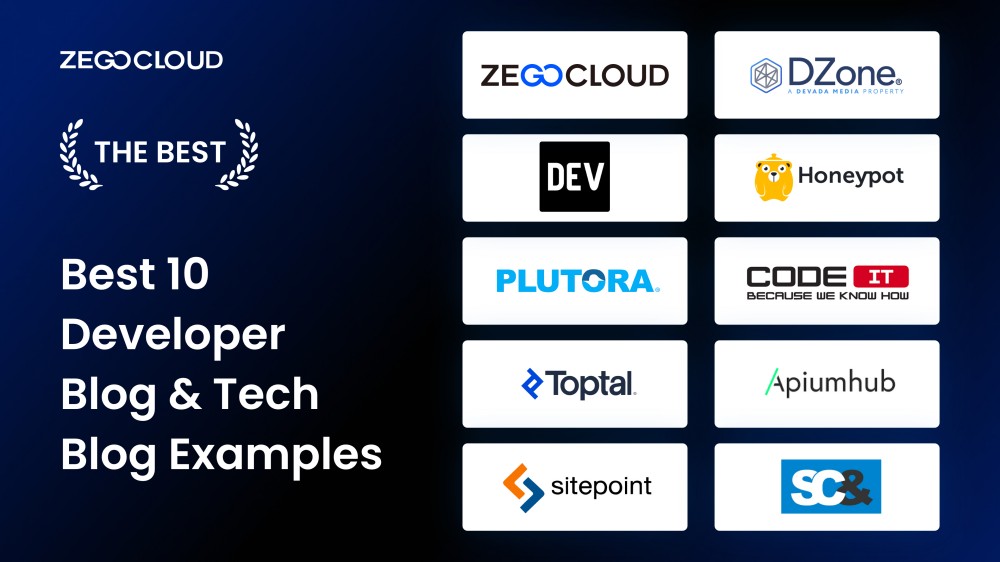Discover the Best tech blog for the Latest Trends and Technologies in Technology
Discover the Best tech blog for the Latest Trends and Technologies in Technology
Blog Article
Just How Blockchain Innovation Is Revolutionizing Information Protection
Blockchain technology is essentially modifying the landscape of information protection by presenting a decentralized framework that guarantees improved openness and strength. Unlike traditional systems, which rely upon centralized data databases, blockchain disperses information throughout a network, lessening susceptabilities and solitary factors of failing. Using innovative cryptographic strategies ensures that data stays tamper-proof, promoting trust among stakeholders and users. As sectors swiftly adapt to this technology, concerns emerge concerning its broader influence and potential obstacles. What effects does this change hold for future data security strategies and regulatory structures? The solutions may stun you (Best tech blog).
The Basics of Blockchain
Blockchain technology, a cutting edge principle in digital information monitoring, basically transforms exactly how info is stored and safeguarded. At its core, a blockchain is a dispersed journal that tape-records transactions across a network of computers, ensuring openness and immutability. The technology runs on a chain of blocks, each including a list of deals. When a block is filled up, it is time-stamped and connected to the previous block, producing a sequential chain.
Trick to recognizing blockchain is the hashing procedure, which encrypts transaction information into a distinct alphanumeric code. This cryptographic feature makes certain that any type of change in the transaction data causes a totally various hash, thus protecting against meddling. The consensus device, one more critical part, confirms and confirms new deals via a network of nodes, thus removing the requirement for a centralized authority.
In addition, blockchain's append-only framework makes certain that information, when included, can not be deleted or modified. This particular guarantees a permanent and verifiable record of purchases, cultivating depend on amongst participants. As an outcome, blockchain offers a robust framework for data honesty, providing industries a reputable approach for monitoring and managing electronic details in a safe, clear way.
Decentralization and Safety And Security
Decentralization, a core concept of blockchain innovation, substantially boosts data safety and security by dispersing control throughout a network instead of counting on a particular, centralized entity. This distribution alleviates the threat of single points of failure, which prevail in standard central systems. By spreading data throughout various nodes, blockchain makes sure that also if one node is jeopardized, the entire network continues to be secure. This redundancy not only fortifies the integrity of the data however also boosts its durability to cyberattacks and system failings.

Each individual in the network has access to the entire blockchain, permitting them to confirm and examine deals separately. Generally, decentralization is important in boosting data safety and security in blockchain networks.

Cryptographic Techniques
At the heart of blockchain innovation, cryptographic techniques play an essential function in securing information, making sure both confidentiality and integrity. These techniques are foundational to the blockchain's capacity to securely tape-record purchases in a decentralized manner. Cryptography in blockchain uses a mix of symmetrical and crooked formulas to secure data, making it obtainable only to accredited events - Best tech blog. Public and exclusive crucial sets are central to this process, permitting safe verification and identification verification without revealing sensitive information.
Hash functions are another vital part, transforming input information right into a fixed-size string of characters, efficiently producing a distinct electronic fingerprint for each block. This makes sure that any type of attempt to modify the information will lead to a completely various hash, hence preserving visit here the immutability of the blockchain. Electronic signatures verify the credibility and stability of deals, giving a layer of non-repudiation.
The decentralized nature of blockchain, incorporated with robust cryptographic methods, gets rid of the need for intermediaries, reducing potential vulnerabilities. As blockchain innovation evolves, developments in cryptography such as zero-knowledge evidence and homomorphic file encryption proceed to improve safety and security actions, better fortifying information defense in this revolutionary electronic ledger system.
Use Situations Throughout Industries

In the medical care industry, blockchain makes certain the safe storage and sharing of patient documents, advertising interoperability while securing delicate information from unapproved accessibility. This modern technology empowers individuals with control over their medical history and assists in smooth control among medical care carriers.
Supply chain management benefits dramatically from blockchain's immutable ledger, which makes certain traceability and credibility of products from origin to consumer. By improving transparency, blockchain helps reduce concerns such as counterfeiting and dishonest sourcing.
In addition, blockchain's decentralized nature is reshaping the power market by making it possible for peer-to-peer power trading, where consumers can deal excess renewable resource directly. This promotes a much more lasting and reliable energy environment.
In the realm of intellectual property, blockchain offers a tamper-proof platform for developers to register and shield their jobs, making certain rightful attribution and reasonable compensation. These diverse usage instances underscore blockchain's role as a pivotal pressure in redefining information protection across sectors.
Future of Information Defense
As we want to the future of information defense, blockchain modern technology is positioned to play a crucial function in securing navigate to this website digital info. With its decentralized and unalterable attributes, blockchain supplies a durable structure for securing delicate information versus unauthorized gain access to and cyber hazards. This technology ensures that when information is tape-recorded, it is almost impossible to alter without detection, thus supplying a significant advantage over typical information storage space methods.
The combination of blockchain with various other advanced modern technologies, such as man-made intelligence and the Internet of Points (IoT), is expected to enhance data security approaches additionally. By leveraging smart contracts, companies can automate and enforce safety methods, minimizing human error and boosting efficiency. In addition, blockchain's ability to offer transparent and traceable purchases will bolster depend on and responsibility in data administration techniques.
As regulatory landscapes evolve, blockchain's compliance-friendly nature will end up being increasingly relevant. It can aid companies satisfy strict information protection regulations, such as the General Data Security Guideline (GDPR) and the California Customer Privacy Act (CCPA), by offering verifiable documents of information handling tasks. Eventually, blockchain's distinct characteristics setting it as a transformative tool in the ongoing pursuit to secure the electronic globe against ever-evolving cyber dangers.
Final Thought
Blockchain innovation stands for a standard shift in information protection by leveraging decentralization and cryptographic strategies to boost transparency, depend on, and information integrity. As cyber threats progress, blockchain emerges as an important device for durable information protection across various sectors.
Blockchain technology is essentially changing the landscape of information security by introducing a decentralized framework that guarantees improved openness and resilience. Unlike typical systems, which rely on central information repositories, blockchain distributes data across a network, decreasing vulnerabilities and single points of failure.Decentralization, a core principle of blockchain innovation, substantially boosts information security by distributing control throughout a network instead than counting on a single, central entity.At the heart of blockchain innovation, cryptographic methods play a crucial duty in guarding data, ensuring both confidentiality and honesty.Blockchain innovation represents a paradigm change in information security by leveraging decentralization and cryptographic strategies to boost openness, depend on, and information integrity.
Report this page